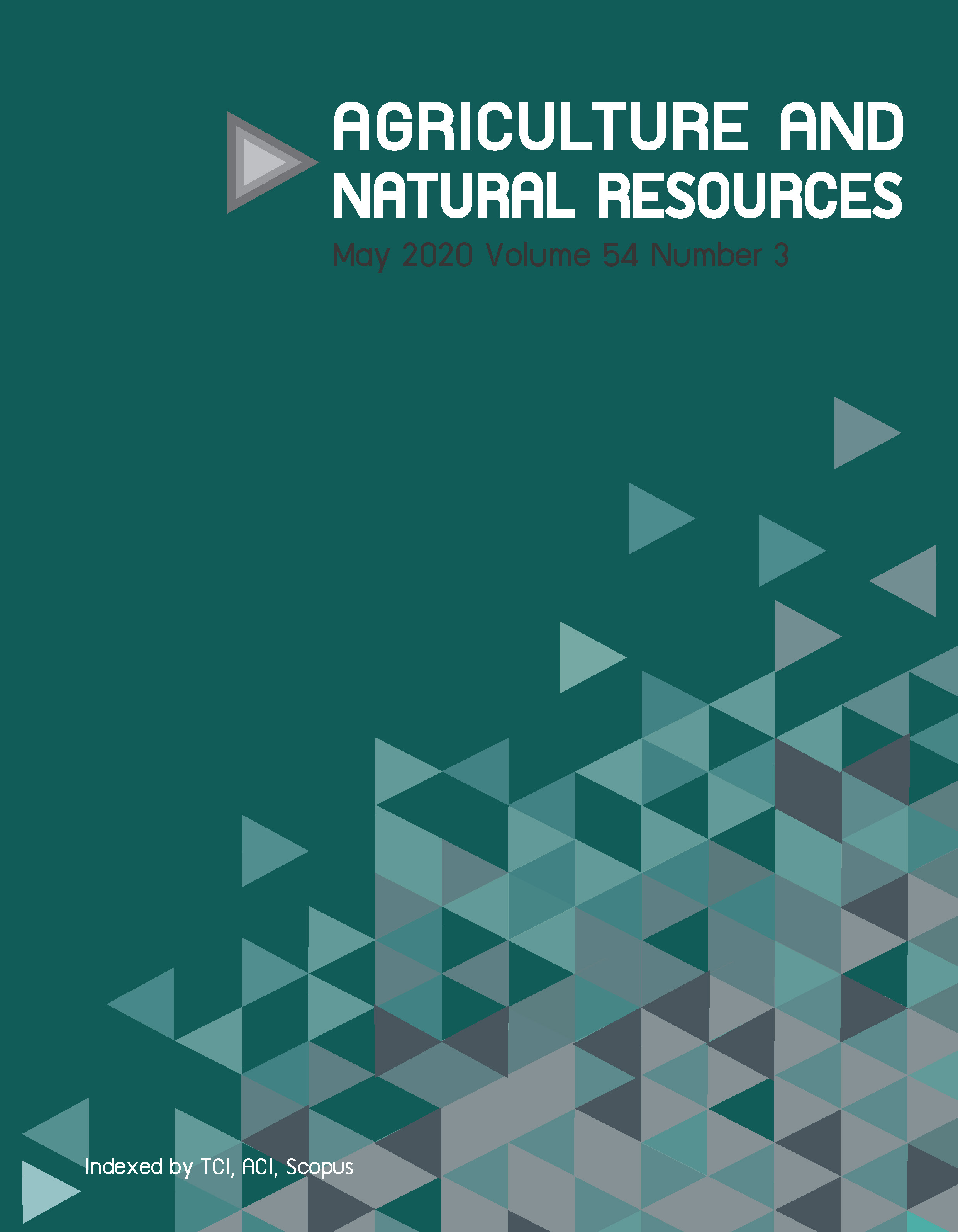Diversity and abundance of gastropods in relation to physio-chemical parameters in rice paddies, Chiang Rai province, Thailand
Keywords:
Gastropod, Physio-chemical parameter, Rice paddy, Species diversityAbstract
Species diversity and abundance of gastropods were investigated in the rice paddy ecosystem in Chiang Rai province, Thailand during October 2018. Gastropod samples were collected at
five stations using five sampling sites and the quadrat method; in-situ measurements of the physio-chemical characteristics of water were conducted using field meters. All data were analyzed to determine gastropod abundance and ecological indices. Statistical analyses were conducted to examine the physio-chemical properties and abundance of gastropods. In total, 943 gastropods were collected and classified into eight species belonging to six families and six genera: Filopaludina sumatrensis polygramma (Martens, 1860); F. martensi martensi (Frauenfeld, 1865); Bithynia funiculata Walker, 1927; B. siamensis siamensis Lea, 1856; Lymnaea sp., Melanoides tuberculata (Müller, 1774); Pomacea canaliculata (Lamarck, 1819); and Indoplanorbis sp. The abundance of gastropods was 104.75 individuals/m2. The most dominant and widely distributed species was B. siamensis siamensis, which was found at all sampling stations. The mean (± SD) ecological indices of richness, diversity and evenness were 0.591 ± 0.14, 0.618 ± 0.27 and 0.474 ± 0.22, respectively. Data analysis revealed that some physio-chemical parameters of water (electrical conductivity and total dissolved solids) had negative correlations with gastropod abundance of F. martensi martensi (p < 0.05), while P. canaliculata was positively correlated with water temperature (p < 0.05).
Downloads
Published
How to Cite
Issue
Section
License
Copyright (c) 2020 Kasetsart University

This work is licensed under a Creative Commons Attribution-NonCommercial-NoDerivatives 4.0 International License.
online 2452-316X print 2468-1458/Copyright © 2022. This is an open access article under the CC BY-NC-ND license (http://creativecommons.org/licenses/by-nc-nd/4.0/),
production and hosting by Kasetsart University of Research and Development Institute on behalf of Kasetsart University.







